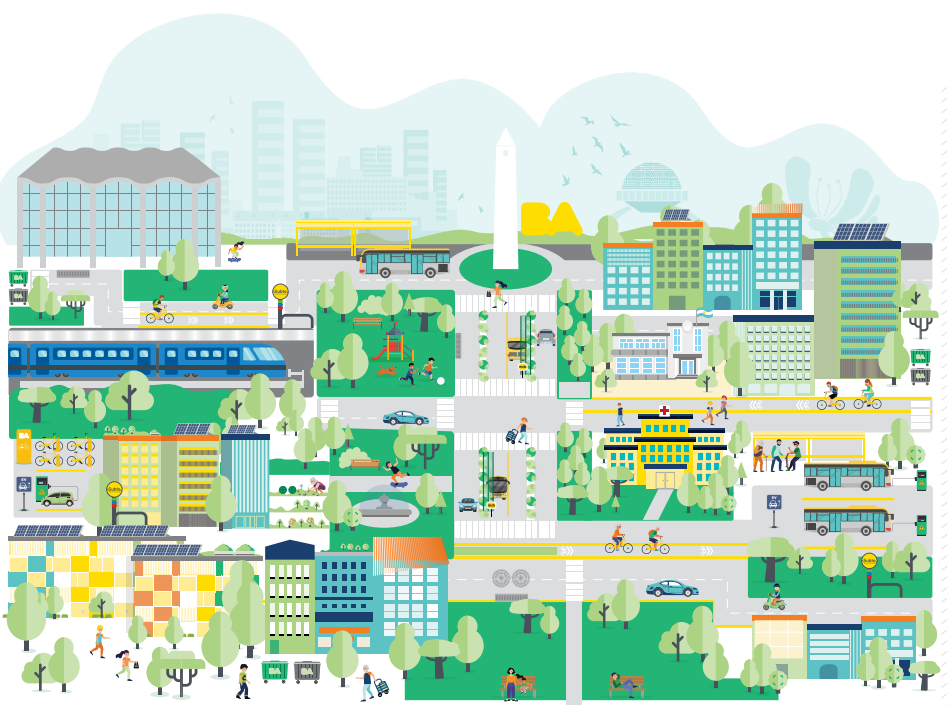
Photo: City of Buenos Aires
How Buenos Aires plans to halve emissions by 2030
06 May 2021
by Sarah Wray
The City of Buenos Aires has published its Climate Action Plan 2050, which sets out targeted measures to cut greenhouse gas emissions and increase resilience.
The Argentinian capital has pledged to become climate-neutral by 2050, reducing emissions 53 percent by 2030 and 84 percent by 2050.
The plan outlines 24 areas of action under four main pillars: preparedness; proximity to local amenities; adoption of low carbon policies and technologies; and inclusion.
Within this, the city is aiming for three-quarters of passengers to exclusively use public and non-motorised transport by 2030. By 2050, 80 percent of all residential buildings will be retrofitted according to strict energy-efficiency standards, and 70 percent of all new buildings will use solar thermal energy.
Horacio Rodriguez Larreta, Mayor of Buenos Aires, said: “We are at a crossroads in climate history where cities’ commitments to climate action and building resilience will be critical to our post-pandemic recovery and to the success of key international climate milestones.”
“Our Climate Action Plan reflects not only the importance we attach to tackling the global climate crisis and mitigating climate risks on our doorstep, but also our broader vision of continuing to build our city on a more human scale to prioritise public space, sustainability and quality of life,” he added.
Streets to meet
Other key measures include planting 100,000 more trees by 2025; implementing 15 new pedestrian zones by 2030; and ensuring all buses are zero emissions by 2050.
By 2025, the city says that every resident will be an average distance of 400 metres from a green space. It also plans to create a pedestrian street designated for community meetings and cultural events in every one of the city’s 48 neighbourhoods.
The city will continue to expand cycle lanes and is aiming for 1 million daily journeys to be taken by bike by 2023.
All vulnerable neighbourhoods should have vegetable gardens by 2025.
“Our commitment to climate action will also be key to attracting international talent and promoting economic development, supporting the transition to jobs of the future and generating new opportunities,” said Fernando Straface, Secretary General and Secretary for International Relations, City of Buenos Aires.
Straface recently told Cities Today how Buenos Aires plans to attract students, digital nomads and tourists again after the disruption caused by COVID-19.













